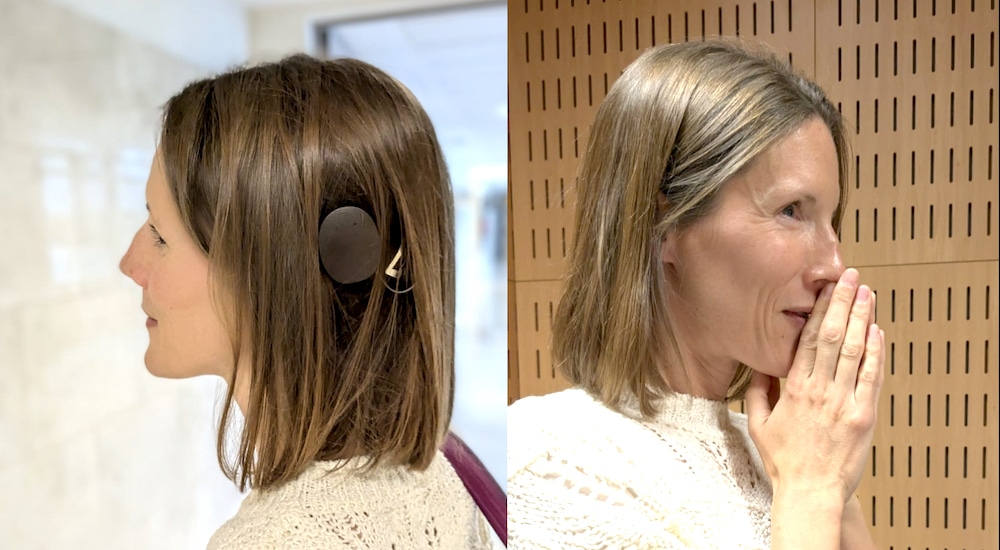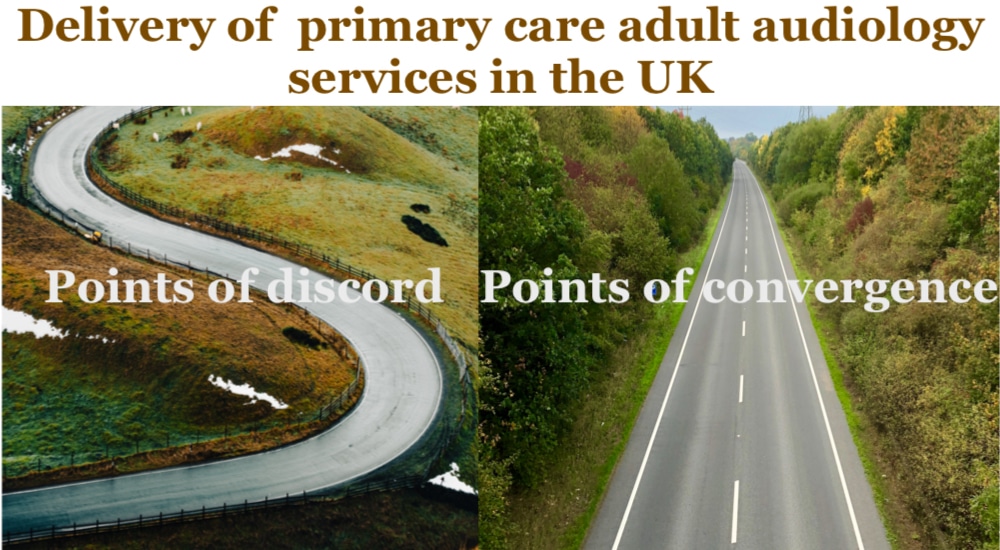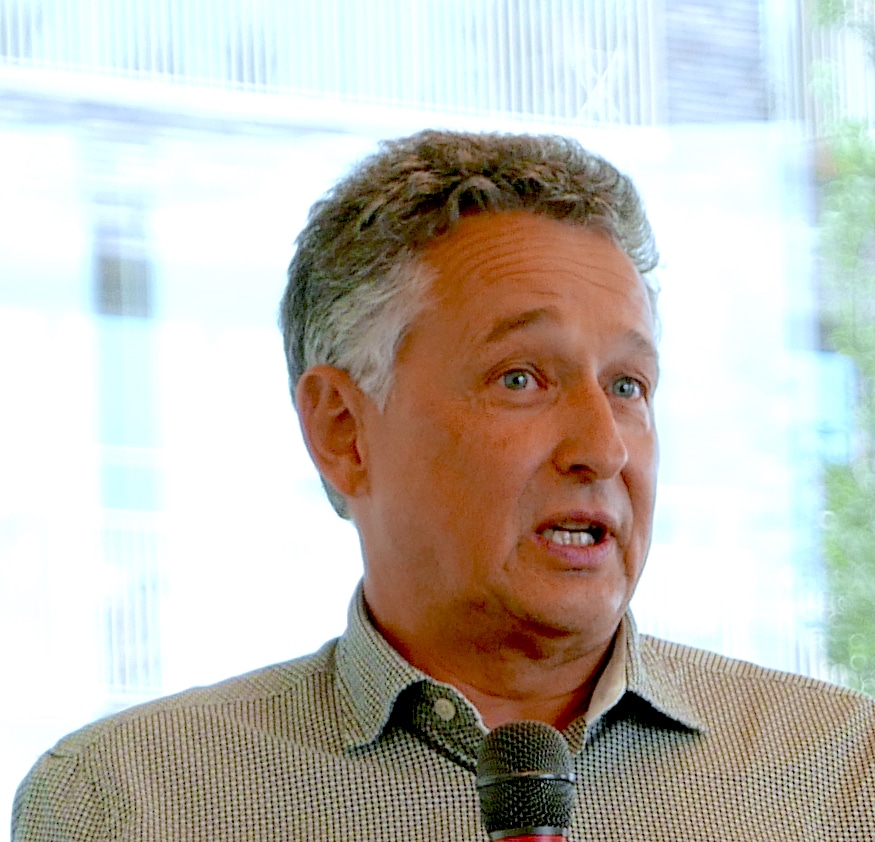HARD OF HIRING: UK audiology recruitment crisis Part Two - Interview: Samantha Lear, President British Academy of Audiology
The audiology profession and industry faces serious difficulties in recruiting new workers. This is a crisis. Read this Audiology Worldnews interview with Samantha Lear, President of the British Academy of Audiology. (BAA)

Audiology Worldnews(AWN): What are the signs of a workforce crisis, and who is currently complaining that recruitment in audiology is not working as it should do?
Samantha Lear (SL): BAA’s members are telling us that there are difficulties with the audiology workforce which are ongoing and worsening. NHS Audiology waiting times have continued to rise, quality of provision is variable, and uptake of IQIP (Improving Quality in Physiological Services) accreditations continues to fall, largely because of capacity. One major factor affecting recovery and quality of provision is an increasing shortage of qualified healthcare scientists in the audiology workforce.
Heads of NHS services across the UK are telling us via regional meetings and regional networks that there are vacancies within their services, and difficulties recruiting for some services. BAA held a workshop on Education & Workforce in 2022 and invited key stakeholders who were asked to comment on their key priorities for the NHS audiology workforce over the next decade. Participants quickly identified that almost all NHS audiology services were experiencing recruitment issues. (reference: British Academy of Audiology (2023). Priorities for Audiology – in progress)
AWN: Right now, there are workforce crises across many professional areas, particularly in healthcare. What is special about the problems in audiology?
SL: Audiology is often seen as a “low-risk” service in the NHS, but BAA’s Report on failings at NHS Lothian are a good example of how badly audiology services can fail (ref: British Academy of Audiology Review into NHS Lothian Paediatric Audiology, Audit Report). Given the magnitude of the workforce problem, the risk of services failing increases, with heads of service finding it challenging to plan for the increasing burden on their services.
We know the burden of hearing loss is increasing with an ageing, increasing population becoming more aware of hearing loss. Adults whose hearing loss isn’t identified and/or managed will have difficulties with communication, access to work, isolation, mental health and are at increased risk of dementia. For children, delays in identifying hearing loss and managing appropriately will have a significant effect on outcomes in the long term.
Audiology services in the UK are provided free at the point of access within the NHS, but there is also a private sector in England that has expanded rapidly, including providing some services on behalf of the NHS. There have always been private independent audiologists and hearing aid dispensers, most of whom aim to provide an excellent service, but the increase in provision of audiology by large high-street chains is relatively recent, and this has contributed to the current workforce crisis in the NHS. Planning for AQP (Any Qualified Provider), and for private providers to take some of the workload from the NHS, seems to have not acknowledged that this would also take some of the workforce away from the NHS. Many graduates are attracted initially to the private sector by higher salaries etc, but those early professionals are then not exposed to other audiology specialisms and complex cases, and this may contribute to poorer retention in the profession overall (ref: HCPC retention data Jan 2023).
AWN: Audiologists, representatives of the profession, and corporate management are all telling this channel that quality of candidates for work in audiology is as big a problem as numbers? Is this your experience?
SL: The Audiology Practitioner Training Programme was changed from a 4-year degree-based programme to a 3-year programme, and some BAA members have expressed concerns that graduates are taught less of the specialist areas like Balance, Paediatric, and Tinnitus, and have had less opportunity for clinical placements. Thus, many graduates require more training and supervision from employers initially before they are confident and competent to practice and this greater burden on the employer in the first couple of years is adding to the pressure on already overstretched services. Furthermore, heads of NHS services are then saying they don’t have capacity to offer placements to students, thus compounding the issues. BAA has contributed to the review of the PTP (Practitioner Training Programme) programme to suggest some ways of addressing this issue, and discussed barriers to training, including placements with NHS England.
AWN: So what do you see as the main causes of this crisis?
SL:There is a significant shortage of suitably qualified and trained recruits entering the NHS. The change in the length of the degree programme has affected the knowledge and experience of newly qualified graduates. But there has also been a shift in loyalties of students to working in the NHS, now the BSc programme is not funded by the NHS. Unlike other fields in the NHS like nursing, audiology students cannot access specific support such as the early learning support fund. The NHS is not able to offer sufficient work placements to sustain the supply of students, and many students are now having final year placements with high street private providers, who are then unaware of the opportunities within the NHS. Thus many graduates are entering employment in the private sector.
However, there is significant attrition of graduates and experienced audiology workforce both in the NHS and private sector. There are limitations in training and development opportunities for the existing workforce due to increased pressure on services and no “slack” for even minimum training/CPD in some services. More broadly, the NHS is becoming less of an appealing place to work. Pay doesn’t compare with private sector at graduate levels and, post pandemic, people are leaving the NHS across all disciplines.
At a national level, there has previously been a lack of workforce planning for audiology, and whilst BAA has expressed support for NHSE’s recent 15-year workforce plan for Healthcare Science – which includes audiology – we have asked for further actions particularly in the short term.
AWN: What are the solutions, and with whom does the responsibility lie to deal with the situation?
SL: In my opinion, the responsibility lies with all providers of audiology services to improve the workforce situation in the short term – both NHS and private sector.
The volume of graduates needs to increase urgently. The NHS itself must plan and fund more places for audiology students and other trainees in all home nations, and steer services to provide training places and placements. There are also barriers for universities when providing audiology courses that could be tackled: e.g. funding to provide a “high cost” course, and access to additional funding for students equitable to other healthcare students, e.g the learning support fund, and placement tariffs.
AWN: If developing and qualifying students is a resource for hearing health, is this resource best served by the public and private duality of audiology pathways?
SL: NHS Audiology provides the breadth of complexity of patients, expertise, and infrastructure essential for audiologists practising in areas of audiology, such as paediatrics and other specialisms, to remain experts in their field. Early professionals in audiology benefit from exposure to these complex patients and multidisciplinary working- audiologists need experience and understanding of complex issues to recognise these even in more routine clinics. I would like private providers who employ new graduates to acknowledge the benefits of this holistic early experience, which ultimately should lead to more knowledgeable and engaged clinicians.
AWN: How can training processes be adapted to produce enough talent of the right kind in audiology? Is training structurally adequate, or are the problems to found in curricular details or teaching quality? What about suggestions that learning should have a broader framing, i.e. not be uniquely confined to audiological knowledge but also embracing wider skills in healthcare, such as psychology?
SL: Issues are likely to be with the changes in structure in audiology education and not related to the quality of teaching, which remains high. Modernising Scientific Careers resulted in course content being broadened outside of audiology, and the specialist content like balance and paediatric essentially replaced with vision and neurology. Broader learning is essential, particularly about patient centred care and areas such as counselling and psychology. Further broadening which replaces audiology modules and a lack of practical experience is not going to produce graduates ready to practice at even a basic grade. Reintroducing specialist modules and re-extending placements would improve graduates’ readiness to practice. More clinical placements must be made available to all students to allow them to experience the breadth of clinical practice.
Read HARD OF HIRING: UK audiology recruitment crisis Part One – Facts and figures HERE.
Source: Audiology News UK (Audio Infos) issue 152 January-February 2023





